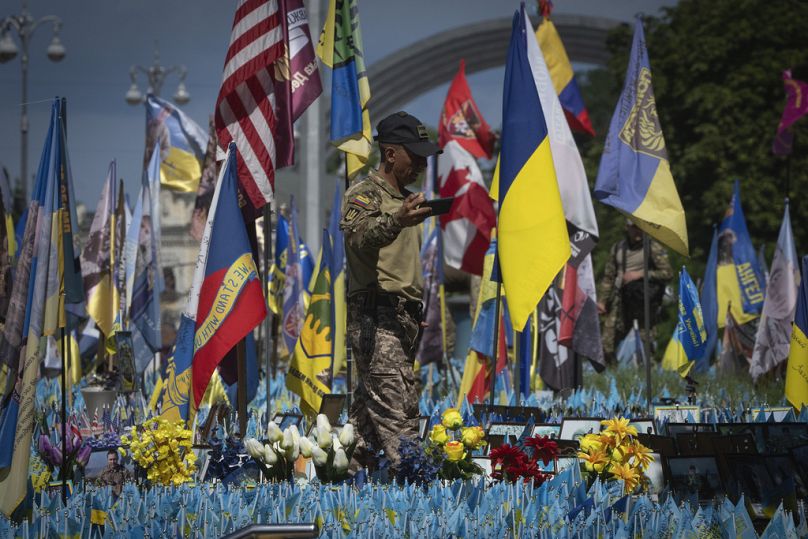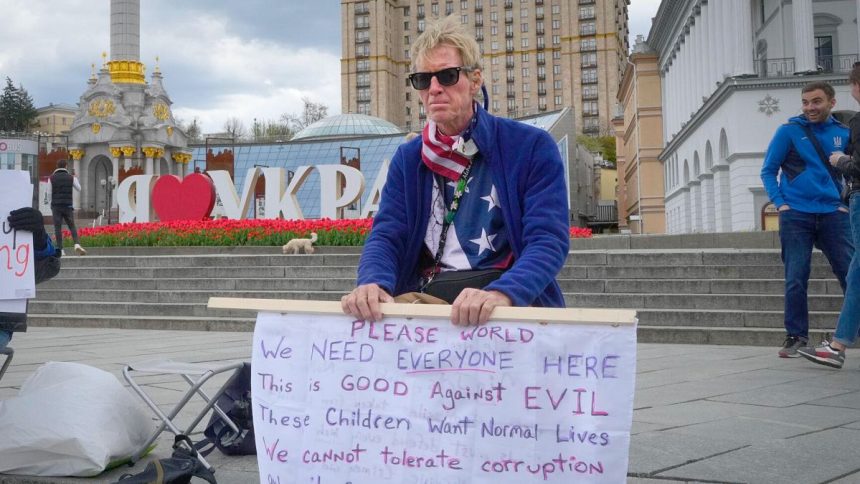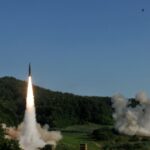In the aftermath of the failed assassination attempt on Donald Trump at his Mar-e-Lago golf course in Florida on Sunday, it was Ukrainians who were shocked by the news the most.
Ryan Wesley Routh, who has been apprehended for his alleged plot to kill the former US president and Republican candidate in the upcoming presidential election in November, had a keen interest in Ukraine.
According to media reports, Routh has repeatedly claimed to have run a recruitment scheme for international volunteers to fight for Ukraine against Russia’s full-scale invasion of its neighbour, now in its third year.
However, his attempts to bring in fighters, most notably from Afghanistan, were not greeted with open arms.
Dozens of posts by soldiers of the Armed Forces of Ukraine, who commonly do not reveal their identity for safety reasons, have appeared on X, sharing screenshots of their alleged exchanges with Ryan Wesley Routh.
Many of them show that Routh was repeatedly told by Ukrainian soldiers and members of the International Legion to stop misrepresenting himself as a recruiter, as his methods were questionable and reflected poorly on Ukraine.
One specific account by a former member of the International Legion shared numerous warnings about Routh as early as November 2023.
The person, whose identity was confirmed by Protect a Volunteer Director Rachel Jamison, said Routh was never officially affiliated with the foreign volunteer unit. He also shared people’s personal information without permission and, notably, allegedly wanted to illegally smuggle Afghan nationals into Ukraine.
“Ryan Routh has many many public Facebook posts about getting soldiers into Ukraine in 2023 and 2024. He has no authority to act on behalf of Ukraine, and ignores laws about visas,” one of the posts on X from June this year about Routh’s actions in Ukraine said.
“Routh is either human trafficking, scamming people, or attempting to break as many country’s laws as he can by trying to smuggle people into Ukraine to fight. This is unethical, unprofessional, and unacceptable. Worse, he is doing this by insisting he is helping Ukraine.”
What was Routh advertising on his website?
Routh has repeatedly shared his support for Ukraine on various social media platforms.
A dedicated website called “Fight for Ukraine” featuring his contact information, including email and phone number, was still online as of Monday afternoon. Euronews confirmed its authenticity after identifying it while examining his past posts on X and other social media and comparing the publicly available personal data.
Through this website, Routh advertised his alleged recruitment efforts, giving rather vague details on how foreigners of “all ages, genders and skill levels” could join the Ukrainian army.
He specifically gave detailed instructions on how potential volunteers could enter Ukraine, stating they could “simply get all the military gear and money and fly to Krakow” in Poland. From there, the website gave the following itinerary: take an intercity train or bus to Przemyśl and then a local train or bus to the Medyka border crossing with Ukraine.
While Medyka is a very popular border crossing to get in and out of Ukraine, it is one of many, and the reason why the website associated with Routh suggested this itinerary is unclear.
The rest of the instructions on what to do after crossing the border are even more confusing.
“Tell the border guard you want to join the International Legion and they will take you to the office and meet with Nazar and the leaders,” it suggested.
While it remains unclear who “Nazar” and unnamed “leaders” are and why they might be situated at an office at the border, the information is misleading and misrepresents the International Legion’s recruitment process.

The International Legion is legally and officially part of the Armed Forces of Ukraine (AFU) and has a well-established application process, which starts with thorough background checks done prior to arrival in Ukraine.
The potential recruits also have to come from a military background and have appropriate training and clearances, contrary to “all ages and skill levels” claims made by Routh.
Once accepted, the recruits are not mercenaries but legal servicemen of the AFU, just like all other Ukrainians and non-citizens. Their recruitment is not an ad hoc decision made on the spot upon their arrival.
The website associated with Routh continued with step-by-step instructions: “They will run your passport and go through your phone to make sure you are not Russian. If accepted, you go directly to a nearby base and train.”
In reality, joining the International Legion does not work like this. The International Legion and other authorities review the formal aspects of the application and notify the applicant in case of their recruitment. Only then are they sent to the appropriate units.
According to the International Legion’s official website, the individual units will then review the file and provide feedback.
“If a unit selects you, you will be informed on how to contact them directly for a final interview with one of your future commanders or a recruiter from the unit,” the Legion says, emphasising that the preparatory process in its earliest stage takes at least three weeks to complete before travelling.
Moreover, the website associated with Routh had the following warning: “Do not call your home country embassy to seek approval to join the fight, simply get on a plane and come to Ukraine and join us.”
- Ukrainian Foreign Legion and Azov Brigade refute links to suspected Trump Florida shooter
- Trump shooting: What we know about the attack and the suspect
On 28 February 2022, four days into Russia’s full-scale invasion, President Volodymyr Zelenskyy signed a decree introducing a visa-free regime for foreigners who are willing to help protect Ukraine from Russian aggression during martial law.
However, his warning to potential recruits against contacting or informing the embassy has nothing to do with the official recruitment process by the International Legion and goes against domestic rules in a number of countries which prohibit their citizens from participating in wars abroad.
Meanwhile, the International Legion has refuted all claims of Routh’s involvement, telling Euronews that Routh has never been part of, associated with, or linked to the International Legion in any capacity.”
“Any claims or suggestions indicating otherwise are entirely inaccurate,” the statement added.
What was Routh doing in Ukraine?
In the aftermath of the incident on Sunday, media outlets were quick to point out his public claims of support for Ukraine.
He has since been identified as a participant in several pro-Ukraine rallies in Kyiv, including an Azov Brigade event in 2022, prompting a response from the military unit rejecting any ties to Routh.
“We would like to officially state that Ryan Wesley Routh has no connection to Azov and has never had any connection to Azov,” the unit said in a statement on X.
“We believe that the spread of the narrative about the possible connection between Azov and Ryan Wesley Routh is playing along with Russian propaganda and discredits the 12th Special Forces Brigade Azov of the National Guard of Ukraine and the Security and Defense Forces of Ukraine in general,” it added.
Routh reportedly told the New York Times in 2023 that he wanted to help Kyiv fend off Moscow’s aggression and that he’d travelled to Ukraine just after the start of the war to aid in recruiting Afghan soldiers who had fled the Taliban two years earlier.
Routh said that dozens of soldiers had expressed interest and that he was trying to move them from Pakistan and Iran to Ukraine.
However, it is unclear whether Routh managed to get any foreign volunteers to Ukraine since making these statements.
A July Facebook post suggests he was still actively trying to recruit foreign soldiers to Ukraine’s cause in the summer but couldn’t get the necessary authorisation.
“Soldiers, please do not call me,” he said on the social media platform. “We are still trying to get Ukraine to accept Afghan soldiers and hope to have some answers in the coming months… please have patience.”
Euronews











